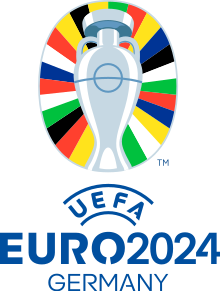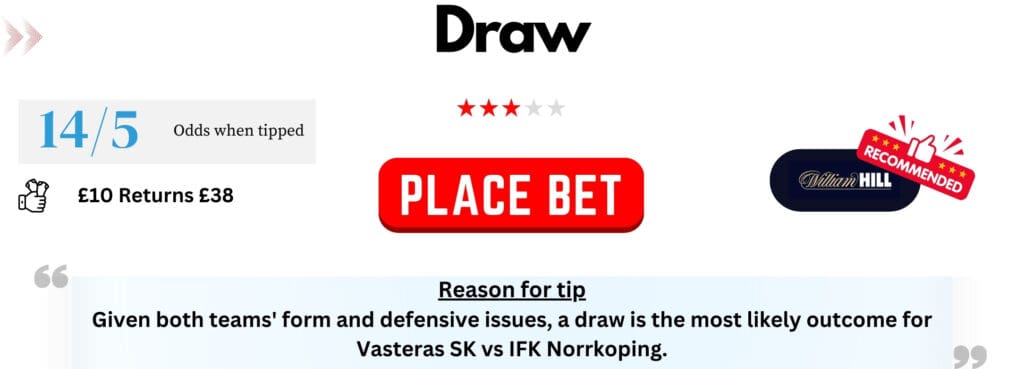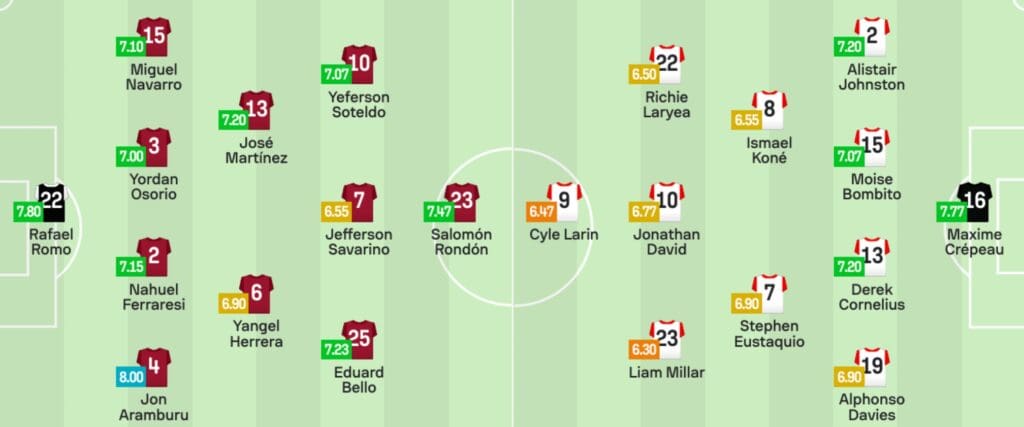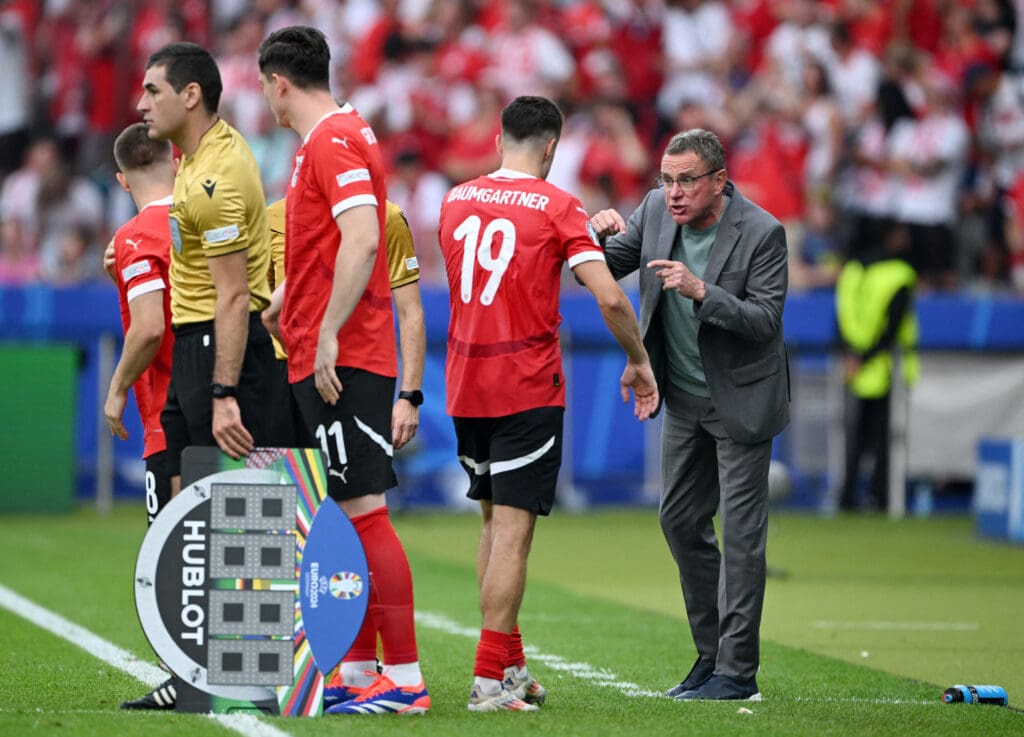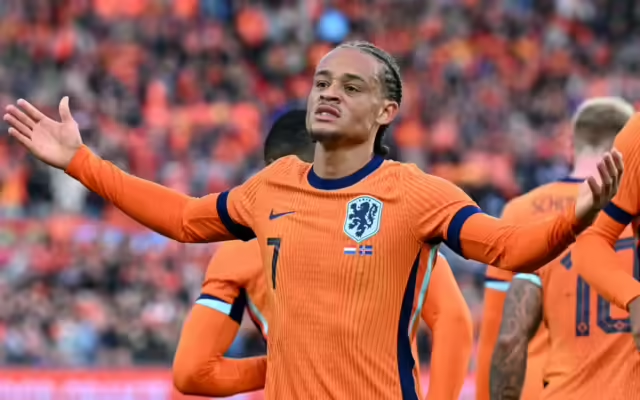Netherlands vs Austria predictions ahead of this affair at Euro 2024. The Netherlands need one point against Austria on Tuesday to secure a Euro 2024 knockout phase spot. Read on for our free betting tips and predictions


European Championship | Group Stage – Jun 25, 2024 at 5pm UK at Olympiastadion Berlin

Don’t have a William Hill account? Click below to claim this offer👇
Netherlands vs Austria Predictions
Key Stats
– Christoph Baumgartner has scored in six of his last seven matches for Austria.
– The Netherlands average 7.3 corners per game in this tournament.
– Austria have seen both teams score in four of their last five matches.
Can Austria Overcome the Dutch Defence in Berlin?
As the Netherlands meet Austria in Berlin for their final Group D fixture at Euro 2024, both teams have clear objectives: the Dutch require just a point to secure a place in the knockout stages, while Austria need to avoid defeat to strengthen their chances of progressing.
Match Preview
Netherlands’ Group Stage Journey
The Netherlands have shown impressive resilience throughout their campaign. Following a strong 2-1 victory over Poland, they managed to secure a goalless draw against tournament favourites France. This draw, although somewhat controversial due to a disallowed goal from Xavi Simons, puts them in a solid position with four points from two matches.
Aiming to extend their unbeaten streak in group matches at major tournaments since the 2014 World Cup, the Dutch have scored consistently except in their recent encounter with France. The 0-0 result in Leipzig was notable not just for the VAR intervention but also for the Oranje’s disciplined defensive performance.
Austria’s Path to Berlin
Austria, meanwhile, have had a mixed but ultimately encouraging start. After a narrow defeat to France, they bounced back with an emphatic 3-1 win over Poland. Key contributions from Gernot Trauner, Christoph Baumgartner, and Marko Arnautovic underscored their attacking prowess. Austria’s need for at least a point against the Netherlands is paramount to ensure their progression, possibly as one of the best third-placed teams.
Expected Lineups and Tactical Approaches
Netherlands’ Possible Lineup
- Goalkeeper: Verbruggen
- Defenders: Dumfries, De Vrij, Van Dijk, Ake
- Midfielders: Reijnders, Schouten
- Forwards: Frimpong, Simons, Gakpo, Depay
Ronald Koeman is likely to stick with a similar lineup to the one that faced France, given their strong defensive performance. Memphis Depay will be central to their attacking efforts, aiming to inch closer to Robin van Persie’s scoring record.
Austria’s Possible Lineup
- Goalkeeper: Pentz
- Defenders: Posch, Danso, Lienhart, Mwene
- Midfielders: Seiwald, Laimer
- Forwards: Wimmer, Baumgartner, Sabitzer, Gregoritsch
Ralf Rangnick may continue with the aggressive pressing style that worked well against Poland. Baumgartner, who was instrumental in their last match, will be key in breaking down the Dutch defence.
Key Players and Tactical Insights
Netherlands
The Netherlands’ defence, anchored by Virgil van Dijk, will be crucial in staving off Austria’s high press. Denzel Dumfries, despite his advanced positioning, will need to maintain defensive discipline. Cody Gakpo and Memphis Depay will be the primary threats up front, leveraging their pace and technical ability to exploit any gaps left by Austria.
Austria
Austria’s hopes will largely rest on the form of Christoph Baumgartner and Marcel Sabitzer. Baumgartner, in particular, has been in scintillating form, scoring in six of his last seven matches. Their midfield, led by Laimer and Seiwald, will look to disrupt Dutch possession and initiate quick transitions.
Tactical Analysis: Deep-Dive
Offensive and Defensive Strategies
Netherlands’ Strategy
The Netherlands have shown a balanced approach, blending solid defensive organisation with potent offensive capabilities. Ronald Koeman’s side typically employs a 4-2-3-1 formation, which provides both defensive stability and attacking flexibility. Key to their defensive strategy is the presence of Virgil van Dijk and Stefan de Vrij, who provide a formidable barrier in central defence. Their ability to maintain composure and organise the backline has been crucial, as seen in their goalless draw against France.
Offensively, the Dutch rely on the creative prowess of Xavi Simons and the pace of Cody Gakpo. Memphis Depay, playing as the central forward, is pivotal in linking play and creating scoring opportunities. His knack for dropping deep to receive the ball and distribute it to advancing midfielders and wingers adds a layer of unpredictability to their attacks. The inclusion of Denzel Dumfries and Nathan Ake as attacking full-backs further bolsters their width, enabling them to stretch the opposition defence.
Austria’s Strategy
Austria, under Ralf Rangnick, have adopted a high-intensity pressing style. Their 4-2-3-1 formation mirrors the Dutch setup but emphasises aggressive pressing and quick transitions. Defensively, Austria’s strategy revolves around disrupting the opposition’s build-up play. Players like Kevin Danso and Philipp Lienhart have been instrumental in maintaining a robust defensive line, capable of intercepting passes and initiating counter-attacks.
Offensively, Austria’s approach is spearheaded by the dynamic midfield duo of Marcel Sabitzer and Christoph Baumgartner. Baumgartner, in particular, has been in scintillating form, scoring in six of his last seven matches. His ability to arrive late in the box and finish clinically has been a significant asset. Up front, Marko Arnautovic provides a physical presence and is adept at holding up the ball, allowing midfielders to join the attack.
Key Player Performances
Netherlands
Virgil van Dijk’s leadership at the back has been indispensable for the Dutch. His commanding presence and ability to read the game have been vital in keeping the defence organised. Cody Gakpo’s performances have also stood out; his pace and dribbling skills pose a constant threat to defences. Memphis Depay, despite not being at his prolific best, remains a crucial figure in their attacking setup.
Austria
Christoph Baumgartner has been Austria’s standout performer. His knack for scoring crucial goals and his work rate have been exemplary. Marcel Sabitzer has also been pivotal, orchestrating play from midfield and contributing defensively. Marko Arnautovic’s experience and physicality have added another dimension to Austria’s attack, making him a key player in their setup.
Managerial Impact
Ronald Koeman’s management has brought a sense of stability and tactical astuteness to the Netherlands. His ability to blend youth with experience has paid dividends, as seen in their disciplined performances. Koeman’s tactical flexibility, particularly his willingness to switch formations and personnel based on the opponent, has been a key factor in their success.
Ralf Rangnick, known for his high-pressing philosophy, has instilled a sense of urgency and aggression in the Austrian team. His tactical approach has made Austria a difficult team to play against, with their relentless pressing often forcing errors from the opposition. However, his insistence on this style sometimes leaves his team vulnerable to counter-attacks, a weakness that could be exploited by more tactically flexible teams like the Netherlands.
Expected Goals Analysis
The Netherlands have an average of 2.1 goals per game in the European Championship qualification, reflecting their attacking efficiency. Their ability to create and convert chances has been consistent, with players like Depay and Gakpo being central to this output. Austria, with a similar average of 2.1 goals per game, have also shown they can be clinical in front of goal. Baumgartner and Sabitzer have been key contributors, ensuring that Austria remain a constant threat in the attacking third.
Tactical Comparison
Both teams employ a 4-2-3-1 formation but with differing tactical nuances. The Netherlands focus on maintaining possession and building attacks methodically, using their full-backs to provide width and their midfielders to control the tempo. Austria, meanwhile, prefer a more direct approach, using quick transitions and high pressing to unsettle opponents.
Player performances reflect these tactical philosophies. For the Dutch, van Dijk and de Vrij are crucial in maintaining a solid defensive structure, while Dumfries and Ake provide attacking options from the flanks. In contrast, Austria rely heavily on Baumgartner’s movement and Sabitzer’s playmaking abilities to drive their attacking play, with Arnautovic offering a target man presence up front.
Suggestions for Improvement
Netherlands
The Netherlands could benefit from a more clinical approach in front of goal. While they create numerous chances, their conversion rate could be improved. Additionally, Koeman might consider integrating more dynamic midfielders like Ryan Gravenberch to add creativity and drive from deeper positions.
Austria
Austria’s high-pressing strategy, while effective, leaves them susceptible to counter-attacks. Rangnick should consider adopting a more balanced approach, especially against teams with strong counter-attacking capabilities. Enhancing their defensive transitions and maintaining better positional discipline could mitigate this risk.
Strengths and Weaknesses
The Netherlands’ strength lies in their solid defensive organisation and ability to control possession. Their primary weakness, however, is the occasional lack of cutting edge in the final third. Despite their solid build-up play, they sometimes struggle to convert chances into goals.
Austria’s aggressive pressing and quick transitions are their main strengths. This style, however, can be a double-edged sword. While it disrupts opponents, it also leaves them open to counter-attacks. Their defensive solidity is sometimes compromised by their high defensive line.
Managerial Critique
Ronald Koeman has generally been praised for his tactical acumen and ability to blend youth with experience. However, his sometimes conservative approach, especially when holding a lead, has been criticised. Koeman’s reluctance to make bold attacking changes could be seen as a limitation, particularly when a more aggressive approach might be beneficial.
Ralf Rangnick’s high-pressing philosophy has undoubtedly transformed Austria into a more competitive side. However, this approach has its drawbacks. Rangnick’s rigid adherence to this style often leaves his team exposed defensively. A more flexible tactical approach, incorporating a balanced defensive strategy, could potentially enhance Austria’s overall performance.
Controversial Opinion
While Koeman’s cautious approach can be seen as pragmatic, it sometimes borders on overly conservative, potentially stifling the attacking potential of players like Gakpo and Depay. On the other hand, Rangnick’s insistence on high pressing, despite its effectiveness, could be viewed as reckless against top-tier opposition. His inability to adapt tactically in-game might be a significant drawback in critical matches.
Predictions
Best Bet: Draw
The Netherlands and Austria both have strong motivations heading into this fixture, with a draw appearing to be the most likely outcome. The Dutch have demonstrated a balanced and disciplined approach throughout the group stages, with a solid defensive performance against France that saw them secure a valuable point. Their ability to maintain defensive structure under pressure, combined with their need for just one point to progress, suggests they will approach this match with a cautious strategy.
Austria, on the other hand, have shown they can be effective in both attack and defence, exemplified by their 3-1 victory over Poland. Their high-intensity pressing style will certainly test the Dutch defence, but they also recognise the value of a point in ensuring their advancement. Both teams have the quality to score, but neither will likely risk overcommitting, making a draw the most plausible result.
Correct Score: 1-1
Aligning with the prediction of a draw, a 1-1 scoreline seems the most probable outcome for this encounter. The Netherlands have proven to be effective in front of goal but have also faced challenges breaking down well-organised defences, as seen in their match against France. Meanwhile, Austria have displayed an ability to find the net even against robust defences, highlighted by their performances in the group stage.
Both teams are capable of scoring, with the Netherlands averaging over two goals per game and Austria not far behind. However, considering the defensive strengths of both sides and the tactical approach they are likely to adopt, a balanced score of 1-1 fits well with the overall scenario of a closely contested match where neither team will overextend themselves.
Goalscorer Prediction: Christoph Baumgartner
Christoph Baumgartner has been in exceptional form for Austria, scoring in six of his last seven appearances. His ability to find space and his clinical finishing make him a significant threat to the Dutch defence. Baumgartner’s knack for arriving late in the box and his composure in front of goal have been crucial for Austria’s attacking success.
Given the Netherlands’ tendency to leave gaps in their defence when their wing-backs push forward, Baumgartner is likely to capitalise on such opportunities. His recent performances suggest he has the momentum and confidence to score, making him the standout candidate to find the net in this crucial match.
Corner Prediction: Netherlands to Win the Corner Count
The Netherlands have consistently demonstrated their ability to generate corners, averaging 7.3 per game in this tournament, significantly higher than Austria’s 5.3. This higher average is reflective of their attacking style, which often sees them pushing forward and creating chances from wide positions.
The Dutch wing-backs, particularly Denzel Dumfries, frequently contribute to their corner count with overlapping runs and crosses into the box. Austria, while effective on the counter, may find themselves on the back foot against a possession-dominant Dutch side. Therefore, it is expected that the Netherlands will win the corner count due to their offensive pressure and higher rate of creating set-piece opportunities.
Shot on Target Prediction: Cody Gakpo
Cody Gakpo has been a consistent threat for the Netherlands with his ability to cut inside and shoot with either foot, making him a key player to watch. His average of shots per game, combined with his accuracy, suggests he will be a significant threat to Austria’s defence. Gakpo’s dribbling skills and pace enable him to create shooting opportunities both from open play and set pieces.
Considering Austria’s pressing style, Gakpo is likely to find spaces to exploit, and his tendency to shoot on sight makes him a strong candidate to register at least one shot on target during the game.
Yellow Card Prediction: Denzel Dumfries
Denzel Dumfries’ aggressive style of play often puts him at risk of receiving yellow cards. As a wing-back, Dumfries frequently engages in physical battles both in defence and when pushing forward. His dual responsibilities mean he is often involved in tactical fouls to break up opposition attacks or to regain possession.
Given Austria’s pressing game and their need to secure at least a point, Dumfries will likely be tested defensively, increasing the chances of him committing fouls that could lead to a booking. His propensity for making crucial interceptions and tackles in risky areas further supports the likelihood of him receiving a yellow card.
Assist Prediction: Memphis Depay
Memphis Depay’s vision and creativity make him a prime candidate for providing an assist in this match. His role as a forward who often drops deep to link play allows him to create chances for his teammates. Depay’s ability to pick out precise passes and his awareness of his teammates’ positioning are crucial elements of his game.
With Cody Gakpo and Xavi Simons likely to make runs beyond the Austrian defence, Depay’s passing range and technical skills will be essential in unlocking their back line. His overall playmaking abilities and recent form suggest he is well-positioned to deliver an assist.
Innovative Market Prediction: Total Corners Over 10.5
Considering both teams’ attacking intent and the statistical averages, betting on over 10.5 total corners in this match seems a sound strategy. The Netherlands’ average of 7.3 corners per game and Austria’s 5.3 reflect their offensive approaches and the likelihood of numerous set-piece opportunities.
Both teams’ style of play—Austria’s high press and the Netherlands’ wide attacks—typically results in multiple corners. The cumulative corner average for both teams in this tournament suggests that a high corner count is probable, making the over 10.5 corners market an attractive betting option.
Top UK Bookies & Best Sign Up Offers
Subscribe To Our Newsletter For Exclusive Tips
Want to have exclusive tips from experts tipsters delivered right into your inbox? Subscribe Now To Our Newsletter. We will never spam, we fully respect your privacy!


